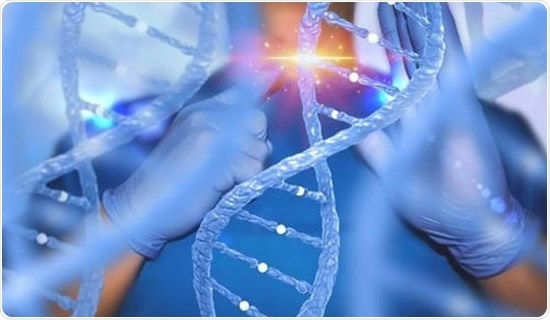A single analysis of the entire tumor DNA is mostly sufficient to identify all DNA errors that might be relevant for treating metastatic cancer. This is because actionable DNA errors remain remarkably stable over time, in spite of treatment with drugs.

Image Credit: Netherlands Cancer Institute.
The finding was made by Dutch scientists in a research work conducted by the Netherlands Cancer Institute. The results of the study were published online in Nature Medicine, a scientific journal, on August 9th, 2021.
Cancer results from DNA errors that accumulate in the cells throughout life. Recently, numerous drugs have been developed that particularly target the effects of these DNA abnormalities in the tumor cell. But most of the treatment targets are very rare and hence hard to find when not looking for them particularly.
A commendable approach to overcome this problem is to analyze the whole tumor genome so that all DNA errors become visible at once. This is named Whole Genome Sequencing (WGS), a diagnostic method that is only employed to a limited extent in the standard of care for metastatic cancer.
There persists uncertainty about the frequency of this procedure, as it is known that tumors continuously change their DNA to adapt to given treatments.
Scientists led by the Netherlands Cancer Institute recently identified that the DNA mutations that are relevant for selecting a treatment are very stable, even when the rest of the tumor DNA changes quickly. They recognized this by sequencing the whole DNA of tumors of 231 patients at various moments during the course of the treatment.
DNA defects for which registered drugs are available remained unchanged during treatment in 99% of patients. For DNA defects for which experimental study treatments are available, this was the case in 91%.”
Joris van de Haar, Physician–Researcher, Netherlands Cancer Institute
This indicates that mostly in all cases, it is sufficient for a physician to have the whole tumor DNA sequenced only once to acquire a view of all targeted treatment options. The research thus explains that it is both beneficial and possible to map out the tumor DNA right away, for instance, while diagnosing metastatic cancer, so that all feasible options can be discussed with a patient at an early stage. This means, no opportunities are ignored.
Also in view of the costs of a WGS test, it is important to know that one test will almost always be sufficient.”
Emile Voest, Research Leader, Netherlands Cancer Institute
On the basis of their findings, the scientists argue that this test should be made available to all patients with metastatic cancer.
The study
For this research, clinical data and WGS data from 231 patients with metastatic cancer were compared. A biopsy of their metastasis was taken and examined twice (between three and nine months; three or four times in a small number of cases).
Source:
Journal reference:
Van de Haar, J., et al. (2021) Limited evolution of the actionable metastatic cancer genome under therapeutic pressure. Nature Medicine. doi.org/10.1038/s41591-021-01448-w.